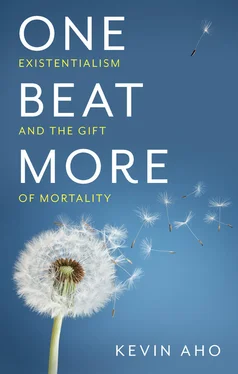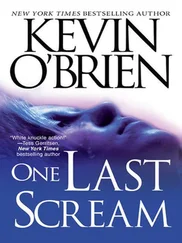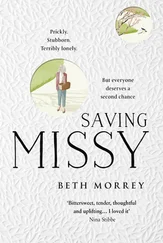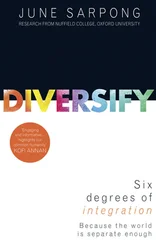This exposes one of the unsettling truths about the coronavirus pandemic. By bringing death clearly into view, it made us realize that we can no longer flee from it. As the world masked up and great cities shut down, as hospitals overflowed with the sick and dying, as we were reminded that a person died from the virus every thirty-three seconds, death ceased to be an impersonal or abstract event. 28We are all waking up to our own finitude, grappling with the reality that it is now my life and my death that are at stake. B. J. Miller, a palliative care physician, describes the existential insights that the pandemic has brought to his own dying patients.
Earlier last week, I had a patient lean into her computer’s camera and whisper to me that she appreciates what the pandemic is doing for her: She has been living through the final stages of cancer for a while, only now her friends are more able to relate to her uncertainties, and that empathy is a balm. I’ve heard many, in hushed tones, say that these times are shaking them into clarity. That clarity may show up as unmitigated sorrow or discomfort, but that is honest and real, and it is itself a powerful sign of life. 29
The pandemic has pulled away the veil, reminding us how close we are to death at every moment and forcing us to confront the most uncertain certainty that we have spent most of our lives hiding from. It allows us to see, finally, what really matters: not the new car, the job title, or the petty grievance at work but the simple, fleeting delights in life that we ordinarily take for granted. As Oregon Senator Richard Neuberger wrote just months before he died of cancer,
Questions of prestige, of political success, of financial status, became all at once unimportant … In their stead has come a new appreciation of things I once took for granted—eating lunch with a friend, scratching Muffett’s ears and listening for his purrs, the company of my wife, reading a book in the quiet cone of my bed lamp at night … For the first time I think I’m actually savoring life. 30
When we are young and healthy, we are, in Kierkegaard’s words, often “too tenacious of life to die.” 31But this tenacious grip begins to loosen as we grow older and move closer to death; we begin to let go of the temporal and, by virtue of the absurd, the temporal comes back to us and is now illuminated in ways it never was before. Kierkegaard calls this a “double movement” ( dobbeltbevaegelse ), a movement whereby “every instant we see the sword hanging over the head” and are overcome not only with terror but with awe, as we marvel at the majesty and richness of the moment. 32John Leland noticed this deep wisdom in his study of the elderly. Jonas Mekas, one of the New Yorkers with whom Leland spent more than one year, was a ninety-two-year-old Lithuanian immigrant who survived the horrors of the Nazi concentration camps and lived with an unblinking acceptance of death and an awareness that the future was an illusion. He appeared to embrace Kierkegaard’s paradox, that the finite has infinite significance, that the eternal is not to be found in some supersensible realm but is right here, in the present. After experiencing so much loss in his long life, he describes the simple delights of the temporal that we assume will always be there for us, like eating a plate of grapes. “This plate is my Paradise,” he says. “I don’t want anything else—no country house, no car, no dacha, no life insurance, no riches. It’s this plate of grapes that I want. It’s this plate of grapes that makes me really happy. To eat my grapes and enjoy them and want nothing else—that is happiness, that’s what makes me happy.” 33
Jonas sees death-man in the mirror, but doesn’t recoil from what he sees. He has no illusions and embodies the Kierkegaardian spirit of earnestness. Jonas knows that the clock is ticking, but it is this knowledge that each fleeting moment could be his last, that this grape may be the last sweet thing he tastes, that gives meaning and clarity to his life. Kierkegaard describes this state as being “awakened” to who we are and to what we really care about; it is “to be wide awake and to think death … to think that all was over, that everything was lost along with life,” but to do so “in order to win everything in life.” 34Awakened in this way, Jonas lives with a sense of urgency and vitality that is missing in folks half his age. In the winter of his life, he embodies the core truth of Kierkegaard’s philosophy: that “death in earnest gives life force as nothing else does; it makes one alert as nothing else does.” 35
1 1. Irvin Yalom, Existential Psychotherapy (New York: Basic Books, 1980), p. 98.
2 2. Lawrence Samuel, Aging in America: A Cultural History. (Philadelphia: University of Pennsylvania Press, 2017), p. 1.
3 3. Quoted in Lizzy Buchan, “Coronavirus: Downing Street Denies Claim Dominic Cummings Wanted to Protect the Economy over Elderly.” Independent, March 22, 2020. https://www.independent.co.uk/news/uk/politics/dominic-cummings-boris-johnson-coronavirus-elderly-economy-a9417246.html.
4 4. Felicia Sonmez, “Texas Lt. Gov. Dan Patrick comes under fire for saying seniors should ‘take a chance’ on their own lives for the sake of grandchildren during coronavirus crisis.” Washington Post, March 24, 2020. https://www.washingtonpost.com/politics/texas-lt-gov-dan-patrick-comes-under-fire-for-saying-seniors-should-take-a-chance-on-their-own-lives-for-sake-of-grandchildren-during-coronavirus-crisis/2020/03/24/e6f64858-6de6-11ea-b148-e4ce3fbd85b5_story.html.
5 5. Simone de Beauvoir, The Coming of Age, translated by P. O’Brian (New York: W. W. Norton, 1996), p. 4.
6 6. Ibid, p. 216.
7 7. James Hillman, The Force of Character and the Lasting Life (New York: Ballantine Books, 1999), p. 4.
8 8. William Irvine, A Guide to the Good Life: The Ancient Art of Stoic Joy (Oxford: Oxford University Press, 2009). pp. 192 and 194.
9 9. Beauvoir, The Coming of Age, p. 249.
10 10. Patrick Stokes and Adam Buben, “Editors’ Introduction.” In Patrick Stokes and Adam Buben (eds.), Kierkegaard and Death (Indianapolis: Indiana University Press, 2011), p. 2.
11 11. Søren Kierkegaard, The Concept of Anxiety, translated by W. Lowerie (Princeton, NJ: Princeton University Press, 1944), p. 55.
12 12. Søren Kierkegaard, The Sickness unto Death, translated by A. Hannay (New York: Penguin Books, 1989), p. 64, translation modified.
13 13. Ibid, p. 50.
14 14. Leo Tolstoy, The Death of Ivan Ilych, translated by A. Maude (New York: Signet Classics, 1960). p. 133.
15 15. Søren Kierkegaard, Either/Or, translated by D. Swenson, L. Swenson, and W. Lowrie. In Robert Bretall (ed.), A Kierkegaard Anthology (Princeton, NJ: Princeton University Press, 1973), p. 99.
16 16. Rainer Maria Rilke, The Poet’s Guide to Life, translated by U. Baer (New York: Modern Library, 2005), p. 116.
17 17. Ibid, p. 112, translation modified.
18 18. Søren Kierkegaard, Three Discourses on Imagined Occasions, translated by E. Hong and H. Hong (Princeton, NJ: Princeton University Press, 1993), p. 96.
19 19. Søren Kierkegaard, Fear and Trembling, translated by W. Lowrie. In C. Guignon and D. Pereboom (eds.) Existentialism: Basic Writings (Indianapolis, IN: Hackett, 2001), pp. 44–45.
20 20. Kierkegaard, Fear and Trembling, p. 53.
21 21. Kierkegaard, “The Moment” and Late Writings, translated by H. Hong and E. Hong (Princeton, NJ: Princeton University Press, 1998), p. 177.
22 22. Martin Heidegger, Being and Time, translated by J. Macquarrie and E. Robinson (New York: Harper & Row, 1962), p. 358, translation modified.
23 23. Mary Pipher, Women Rowing North: Navigating Life’s Currents and Flourishing As We Age (New York: Bloomsbury, 2019), p. 59.
Читать дальше












